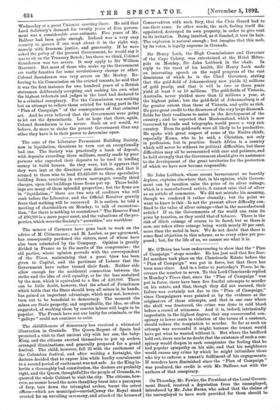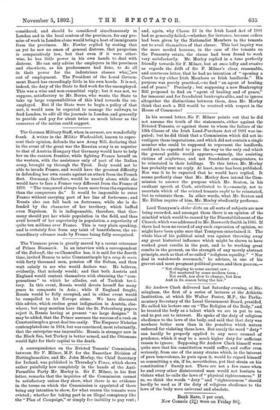On Thursday, Mr. Fowler, the President of the Local Govern-
ment Board, received a deputation from the unemployed, introduced by Mr. John Barns, who asked that the claims of the unemployed to have work provided for them should be considered, and should be considered simultaneously in London and in the local centres of the provinces, for any pro- mise of work in London alone would bring a host of immigrants from the provinces. Mr. Fowler replied by stating that as yet he saw no omen of general distress, that pauperism is comparatively low, but that even if it were other- wise, he has little power in his own hands to deal with distress. He can only advise the employers in the provinces and elsewhere, as his predecessors had done, to do all in their power for the industrious classes whoi,:are out of employment. The President of the Local Govern- ment Board has exceedingly little in his own hands. It is not, indeed, the duty of the State to find work for the unemployed. This was a wise and non-committal reply; but it was not, we suppose, satisfactory to Mr. Burns, who wants the State to take np large responsibilities of this kind towards the un- employed. But if the State were to begin a policy of that sort, it would soon be expected to manage the railways, to feed London, to edit all the journals in London, and generally to provide and pay for about twice as much labour as the resources of the nation could support.























































 Previous page
Previous page